In this article, we will list dairy and non-dairy foods rich in calcium that you may include in your diet whether you are vegan or not.
It is a mineral that is most frequently linked to strong bones and teeth, but it also plays a critical role in blood clotting, assisting with muscular contraction, and regulating regular heartbeats and nerve activity. Most of the calcium in your body is stored in your bones and teeth. There’s a smaller amount in your blood and tissues.
Your body works hard to maintain a steady level of calcium in your blood. If your blood level falls because you’re not getting enough calcium in your diet, your bones will release calcium to bring the level up. Over time, this process can weaken your bones and lead to Osteoporosis and Rickets.
For most adults, it’s recommended to consume at least 1,000 mg of calcium per day, though certain groups require a higher amount, including adolescents, postmenopausal women, and older adults.
Here is the list of 10 calcium-rich foods:
1. Beans and lentils
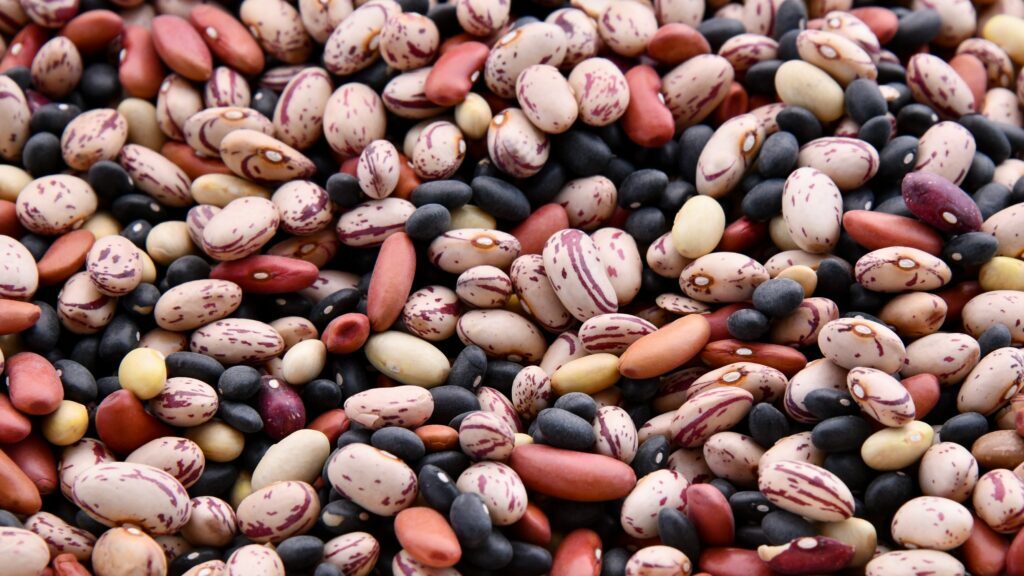
Beans and lentils are high in fiber, protein, and micronutrients, including iron, zinc, folate, magnesium, and potassium.
Some varieties also have decent amounts of calcium, including winged beans, which supply 244 mg, or 19% of the DV, in a single cooked cup (172 grams).
White beans are also a good source, with 1 cup (179 grams) of cooked white beans providing 12% of the DV. Other varieties of beans and lentils have less, ranging from around 3-4% of the DV per cup (175 grams).
Interestingly, beans are credited with many of the health benefits associated with plant-based diets. In fact, research suggests that beans may help lower LDL (bad) cholesterol levels and reduce your risk of developing type 2 diabetes
2. Leafy greens
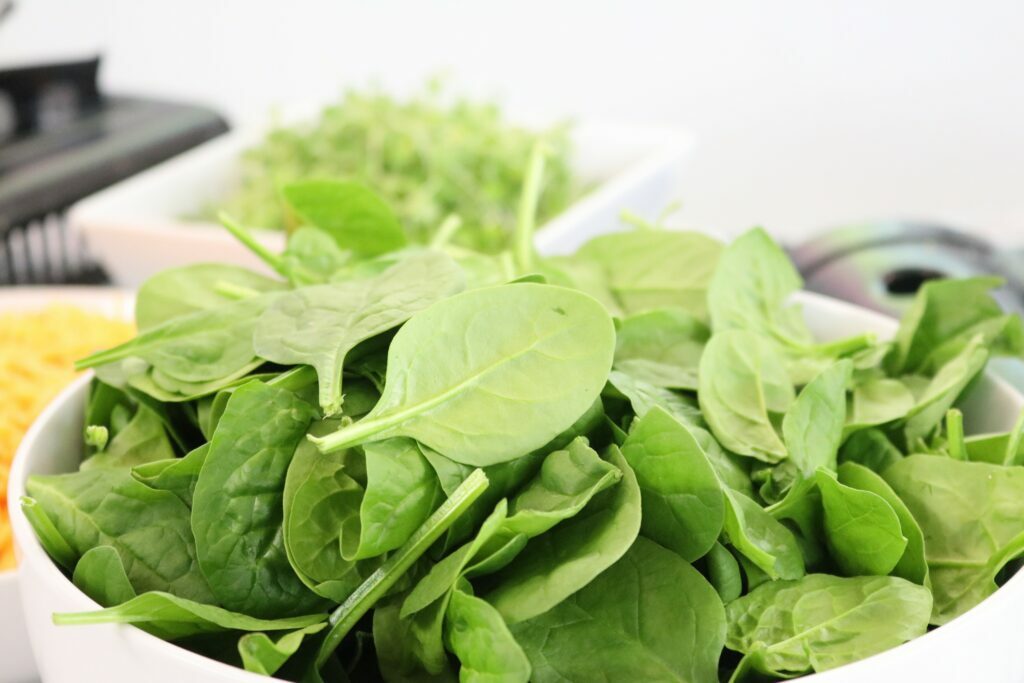
Leafy green vegetables are incredibly healthy, and many of them are high in calcium, including collard greens, spinach, and kale.
For instance, 1 cup (190 grams) of cooked collard greens has 268 mg of calcium or about 21% of the amount that you need in a day.
Note that some varieties, such as spinach, are high in oxalates, which are naturally occurring compounds that bind to calcium and impair its absorption.
Therefore, although spinach is rich in calcium, it’s not absorbed as well as other calcium-rich greens that are low in oxalates, such as kale and collard greens.
3. Almonds
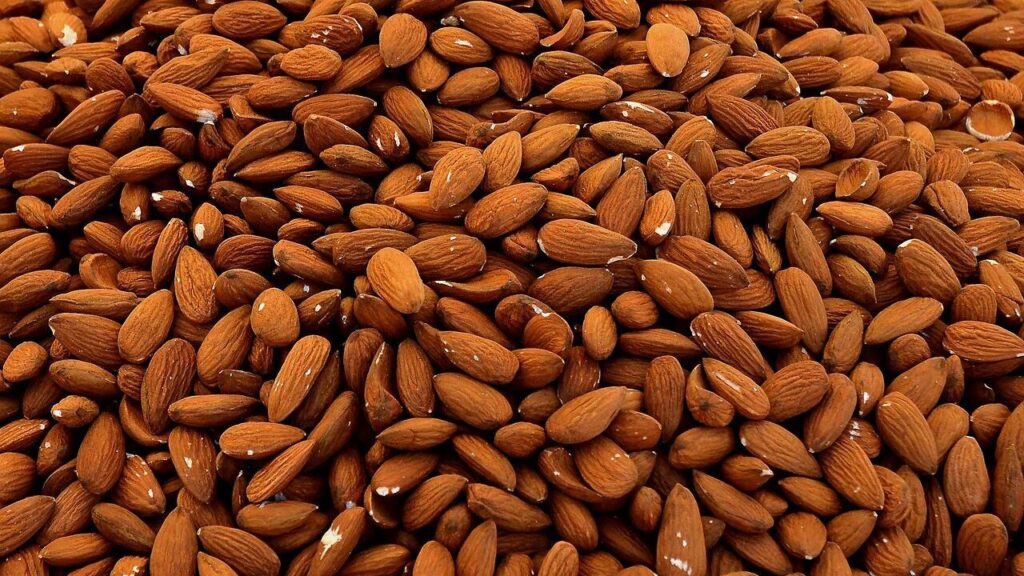
Just 1 cup of whole almonds contains 385 mg of calcium, which is more than one-third of the recommended daily amount. However, the same serving also contains 838 calories and almost 72 grams of fat.
While the fat is mostly healthful and monounsaturated, the calorie count is high, and a person should limit their intake to smaller portions of a quarter cup per serving, for example.
4. Sunflower seeds
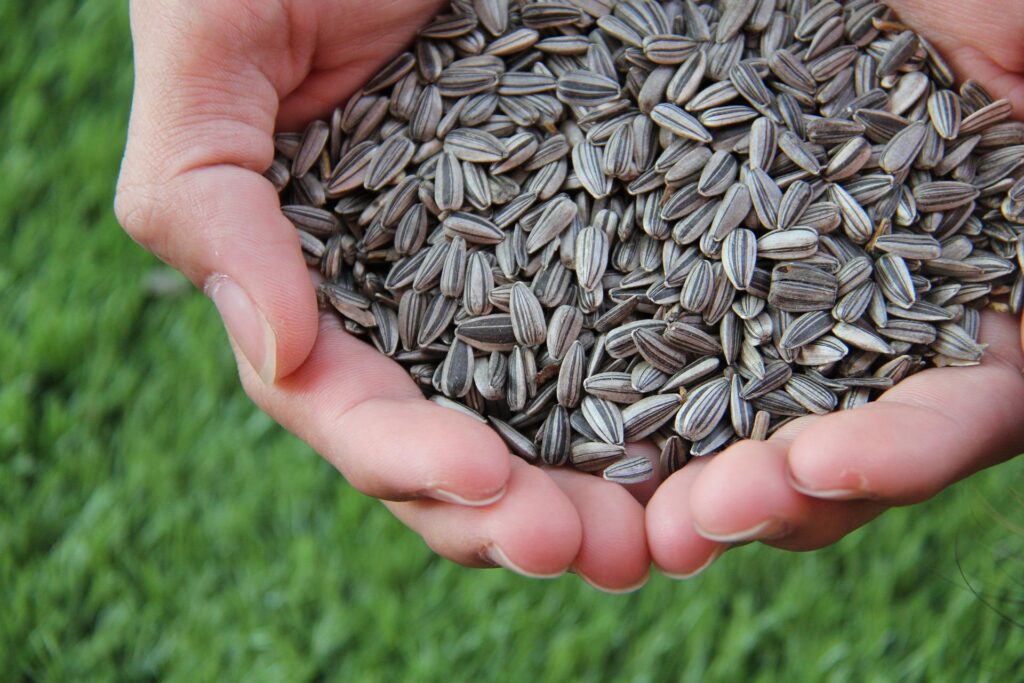
A single cup of sunflower seed kernels contains 109 mg of calcium.
These seeds are also rich in magnesium, which balances the effects of calcium in the body and regulates nerve and muscle health.
In addition, sunflower seed kernels contain vitamin E and copper.
Together, these nutrients can promote bone strength and flexibility and prevent bone loss.
However, sunflower seeds can contain high amounts of added salt, which depletes the body’s levels of calcium. For optimal health benefits, choose raw, unsalted seeds.
Also, consider a single serving to be about one handful of kernels, to avoid excessive calorie intake.
Also read, best protein sources for vegans>>>
5. Yogurt

Yogurt is an excellent source of calcium.
Many types of yogurt are also rich in probiotics, a type of beneficial bacteria that can promote immune function, improve heart health, and enhance nutrient absorption.
One cup (245 grams) of plain yogurt contains 23% of the DV for calcium, as well as a hearty dose of phosphorus, potassium, and vitamins B2 and B12.
Low-fat yogurt may be even higher in calcium, with 34% of the DV in 1 cup (245 grams).
On the other hand, while Greek yogurt is a great way to get extra protein in your diet, it delivers less calcium than regular yogurt.
In addition to providing a wide array of nutrients, some research also shows that regular consumption of yogurt may be linked to a lower risk of developing heart disease and type 2 diabetes.
6. Cheese

Pizza lovers, it’s your time to shine. Mozzarella in particular is an excellent source of calcium, boasting 333 mg per one-and-a-half-ounce serving, which equals a third of your daily needs. Besides making a delicious topping for Margherita pizza, mozzarella is a tasty pairing in seasonal salads featuring the freshest fruits, veggies, and herbs. Try topping your Caprese salad with a sprinkle of sesame seeds or adding a package of spinach to your favorite pasta bake to up your calcium intake even further. And feel free to shave a bit of Parmesan onto your salad. “One ounce of Parmesan contains about 314 mg of calcium,” says Maeng.
7. Milk
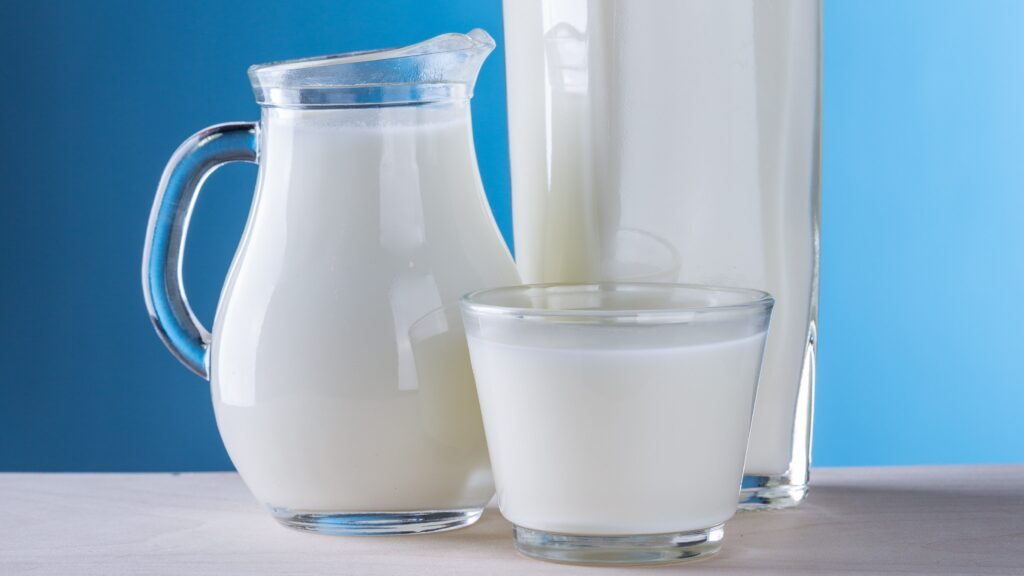
Perhaps the most obvious calcium-rich food, “one cup of cow’s milk contains between 300 and 325 mg of calcium depending on the fat percentage of the milk—this is approximately 25 percent of the daily value,” says Maeng. “Goat’s milk also contains about 330 mg or 25 percent of the daily value of calcium per cup.”
8. Canned Fish
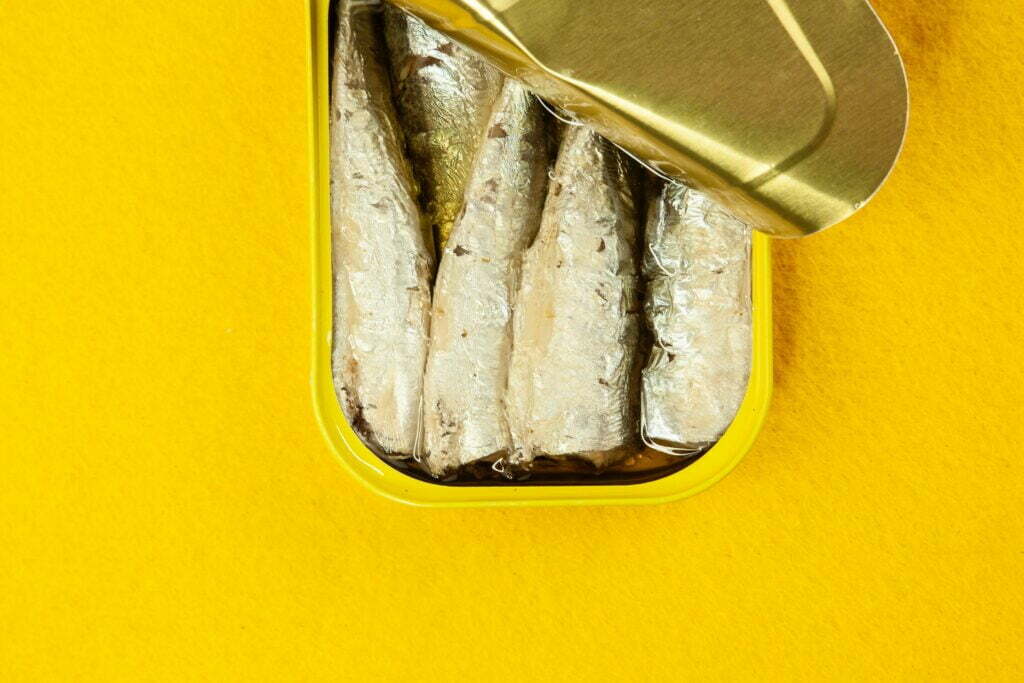
Sardines and canned salmon are loaded with calcium, thanks to their edible bones.
A 3.75-ounce (92-gram) can of sardines packs 27% of the DV, and 3 ounces (85 grams) of canned salmon with bones has 19%
These oily fish also provide high-quality protein and omega-3 fatty acids, which can support the health of your heart, brain, and skin.
While seafood may contain mercury, smaller fish such as sardines have low levels. In addition, both sardines and salmon have high levels of selenium, a mineral that can prevent and reverse mercury toxicity.
9. Seeds
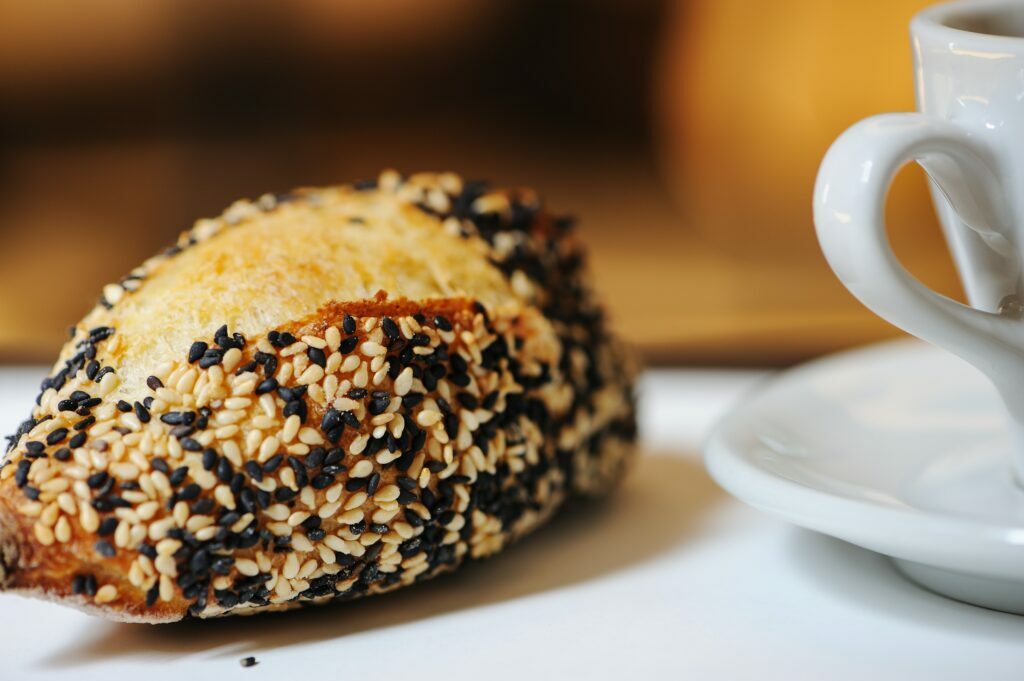
Seeds are one of the most nutrient-dense foods out there, and they also happen to be super rich in calcium. Pirkle particularly relies on sesame, chia, sunflower, and poppy seeds to boost her intake. Sesame seeds alone pack in an impressive 351 mg per 1/4 cup serving, which is more than one-third of the daily recommendation.
10. Figs
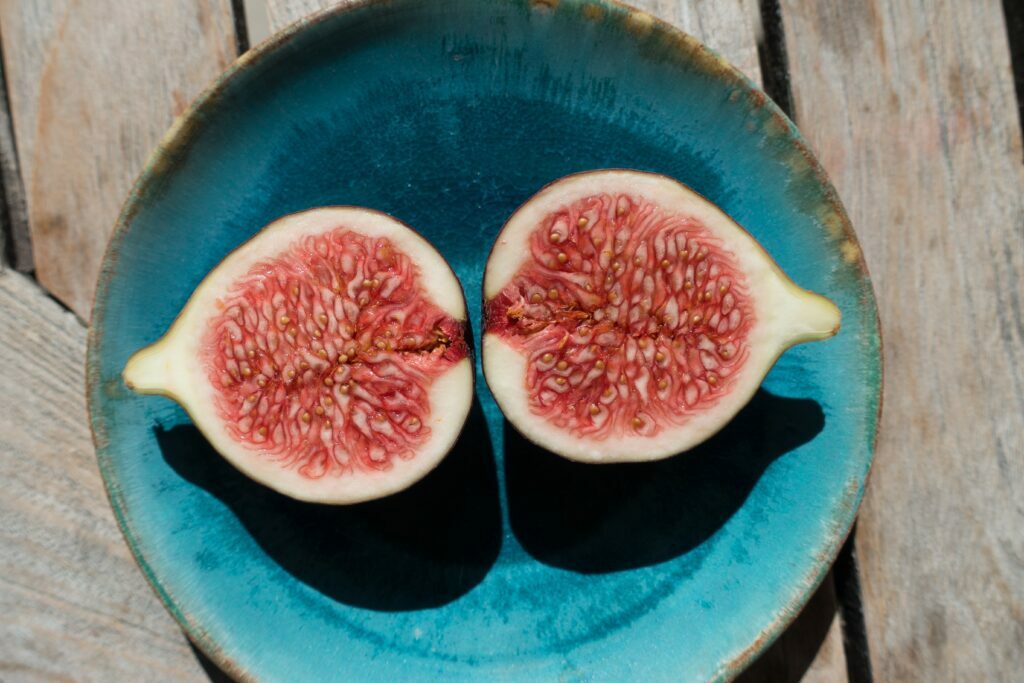
Dried figs are rich in antioxidants and fiber.
They also have more calcium than other dried fruits. In fact, dried figs provide 5% of the DV for calcium in a 1.4-ounce (40-gram) serving.
Moreover, figs provide a good amount of potassium and vitamin K, two micronutrients that are essential for bone health.
The bottom line
Calcium is an important mineral that plays a key role in many aspects of health. Although dairy products often have the largest concentrations of this mineral, there are many other excellent sources, many of which are plant-based.
If you choose from the wide variety of foods listed in this article, you can easily satisfy your calcium needs.

